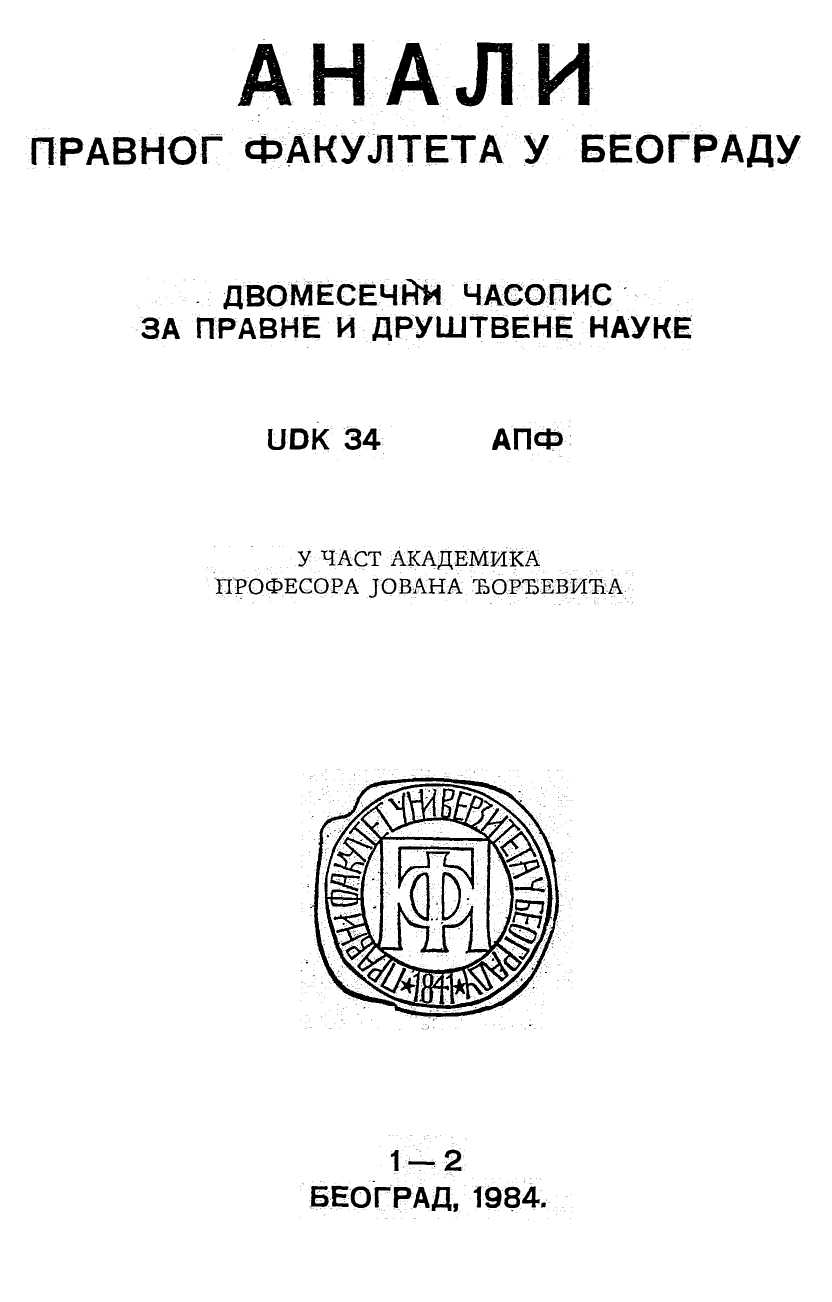THE SOCIAL ENTERPRISES OF MANKIND
THE SOCIAL ENTERPRISES OF MANKIND
Author(s): Elisabeth Mann BorgeseSubject(s): Politics / Political Sciences, Political Theory, Politics and society
Published by: Правни факултет Универзитета у Београду
Summary/Abstract: Jovan Đorđević is a great teacher, who has had a lasting influence on my work and my thinking. It was he who first introduced me to Yugoslav political and constitutional theory: to the self-management system based on the concept of social ownership. His ideas shaped my thinking on the emerging new concept of the Common Heritage of Mankind. The parallels between the two concepts indeed are striking, and may have to be explored further in the future. Both concepts, social ownership and common heritage, are concepts of non-ownership. That is, resources or means of production which belong into either category, cannot be appropriated by anybody, whether State or individual or legal personality. They can be utilized, but not owned. This leads, inevitably to a new economic theory, based on the utilization value rather than the exchange value of things. Such a theory has recently been proposed by Orio Giarini, a Swiss-based economist. Secondly, both concepts, social ownership and common heritage, presuppose a system of management in which all users share. It is this aspect that distinguishes a common heritage regime from a high-seas regime: for while the high seas are inappropriable like the common heritage, they lack a management regime, which, in an era of intense resource exploitation, lays them open to „the tragedy of the commons.” The same distinction applies to the concept of „the commons” and „social ownership” at the national level. Thirdly, there must be benefit-sharing, both under a common-heritage and under a social-ownership regime; and benefit-sharing is to be understood in a broad sense, including sharing not only of financial revenues but of the benefits accruing from shared management, such as technology transfer. So much for the striking analogies. The concept of the common heritage, at the international level, has two further attributes, which are less developed in the social ownership concept at the national level, although they may be implicit or simply taken for granted.
Journal: Анали Правног факултета у Београду
- Issue Year: 32/1984
- Issue No: 1-2
- Page Range: 129-133
- Page Count: 5
- Language: English

